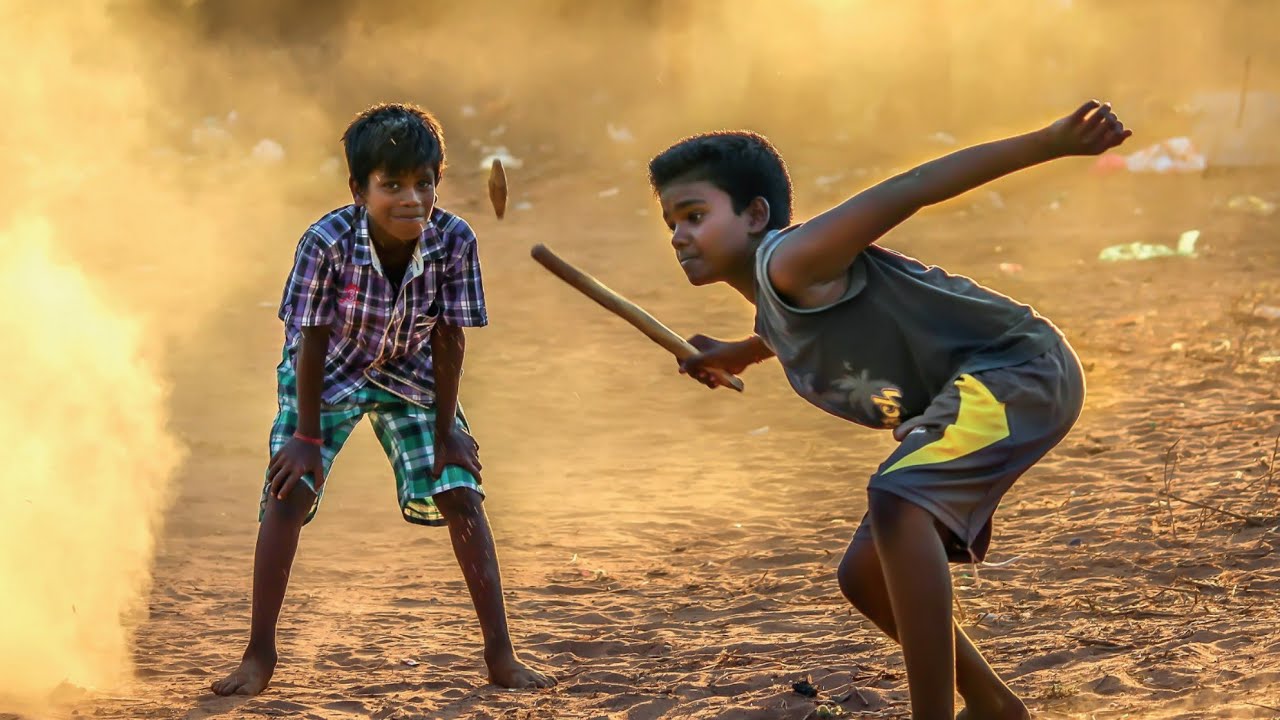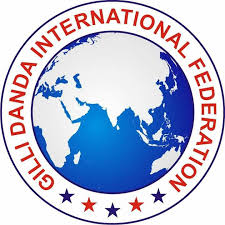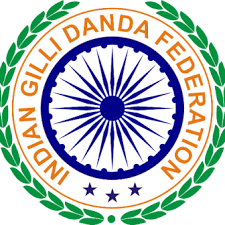
Gilli Danda or Guli Dunda (India, Bangladesh, Nepal, Afghanistan, Pakistan)
- Name of sport (game): Gilli Danda
- Name in native language: Gilli Danda
- Place of practice (continent, state, nation):
Gilli-Danda is an amateur sport played in the rural areas and small towns all over Bangladesh, India, Nepal, Afghanistan and Pakistan as well as Cambodia, Cuba and Italy.
- History:
IIn india, the origin of Gilli Danda dates back to the period of Mauryan Empire. Historical references suggest that common people played the game on the streets, sometimes being accompanied by members of the royal family. Over time, social stigma made higher social strata to abandon it, making it common man’s game.
India was a vast country with a major portion of South Asia under its belt. But as the geographical boundaries were drawn, India was divided and new countries came into existence. However, people never lost the fervor for Gilli Danda. The original game spread from India to its neighbouring countries and it came to be known as Danguli in Bangladesh, Dandi-Biyo in Nepal, Lappa-Duggi in Afghanistan and Kitti-Pullu in Sri Lanka. But with different names came different regional rules. Players played as per their own rules and thus, there was no uniform expansion of the game. It continued to remain as an amateur game only played for entertainment and fun.
It was in 2016 that the countries playing Gilli Danda came under the aegis of Gilli Danda International Federation headquartered in Noida in Uttar Pradesh. The Federation is working on restoring this age-old traditional Indian game by drafting a rule book and promoting it professionally. - Description:
Gilli Danda is known by various other names: it is called Tipcat in English, Dandi-Biyo (डण्डी बियो) in Nepali, alak-doulak (الک دولک) in Persian, dānggűli (ডাঙ্গুলি) in Bengali & Assamese, chinni-dandu in Kannada, kuttiyum kolum in Malayalam, viti-dandu विट्टी दांडू in Marathi,kitti-pul (கிட்டி-புல்) in Tamil, Gooti-Billa or Karra-Billa or Billam-Godu in Telugu, Gulli-Danda'(ਗੁੱਲ਼ੀ ਡੰਡਾ)' in Punjabi, Geeti Danna (گیٹی ڈنا) in (Saraiki, Iti-Dakar (اٽي ڏڪر) in Sindhi, Lappa-Duggi (لپا ڈگی ) in Pashto, Kon ko in khmer, the Cambodian language), Pathel Lele in Bahasa Indonesia, Syatong in Tagalog and Awe Petew in Ilonggo dialect of Philippines.
"Gilli Danda" is played with two pieces of equipment - a danda, being a long wooden stick, and a gilli, a small oval-shaped piece of wood.
Standing in a small circle, the player balances the gilli on a stone in an inclined manner (somewhat like a see-saw) with one end of the gillitouching the ground while the other end is in the air. The player then uses the danda to hit the gilli at the raised end, which flips it into the air. While it is in the air, the player strikes the gilli, hitting it as far as possible. Having struck the gilli, the player is required to run and touch a pre-agreed point outside the circle before the gilli is retrieved by an opponent. This aspect of the game is similar to runs in cricket or home-runs in baseball.
There is no official maximum number of players or teams. Gilli-danda can be played where each individual plays for themselves, or between two teams.To play Gilli Danda you need:
Two wooden sticks are required for this game. Gilli - a small wooden piece 3-1/2 inches long 1-1/4 inches diameter at the centre and tapering at both ends. Danda - a long stick two feet long and one-inch in diameter, like a round ruler. Ask your parents to help you get this. Any carpenters shop will make one for you.
A small circle of four feet diameter is drawn. In the centre a small oblong shaped hole is dug which should be smaller than the gilli.
How to play:
Two teams are formed. One bats and the other fields.
Fielders stand in a position from where they can catch the gilli. The first player places the gilli in the hole and lifts it quickly high in the air with the danda and then strikes it. If he fails at first, he gets another turn. If the fielder catches the gilli before it touches the ground, the batsman is out and the second player tries to hit the gilli. If the gilli is not caught, the distance from the hole to the place where the gilli falls is measured with the danda. Each danda equals one point.
The fielder stands where the gilli had fallen and tosses it to the batsman. The batsman tries to hit the gilli while it is in the air. If it falls, he taps the tapered end and lifts it in the air and strikes while it is in the air. He gets three chances to hit the gilli. If he does not hit it, or is caught, he is out.
The game continues till all batsmen are out. The team changes side and continues the same way. The team with higher score wins. - Current status:
Practiced
There are similar games in many countries:
In Azerbaijan - Çilingağac (Chilingaghaj)
In Galicia (Spain) - billarda
In Catalonia and the Valencian Community, - bòlit
Philippines - syatong or pati-kubra (in Morong, Rizal) is similar to gilli-danda
In Italy - Lippa, Lipe, Tirolo, or S-cianco
In the United States - pee-wee
Dainty is a street ball game played in Schnitzelburg, Louisville, in the United States
In England - Tip-cat, giddy-gaddy and cat's pallet
In Poland - called Klipa
In Malaysia - konda kondi
In Russia - chizhik (чижик)
In Ukraine - chizhik (чижик) as well with sports colours being black
In Slovenia - pandolo
In Mexico - Shangai or Changarais
In Cuba - Quimbumbia
In China - "da-ga-ga"or "da-ga" (打尜) which means "hit small and sharp wood" - Contacts:
Gilli Danda International Federation
Fitworld, 45, Second Floor, Pari Chowk, Near Ansal Plaza Greater Noida, UP 201310 IN
Tel. +91 120 457 9277
Webside: https://www.gillidandasport.com/
https://www.facebook.com/GilliDandaInternational/
Indian Gilli Danda Federation
Tel. +91 96903 34419
https://www.facebook.com/IndianGilliDanda/
- Sources of information :
Video:
https://www.youtube.com/watch?v=CgSs3OvTnUQ
https://www.youtube.com/watch?v=vr_dDqaPjaM - Gallery:
- Documents:

